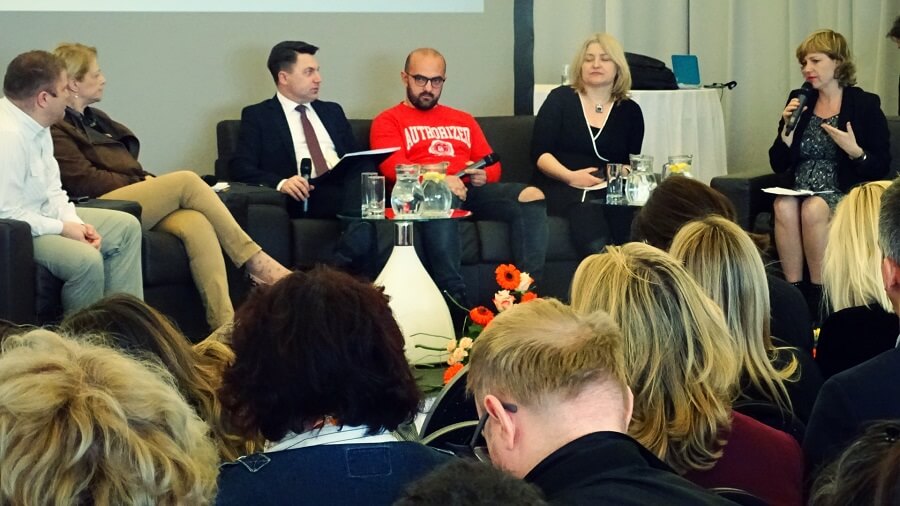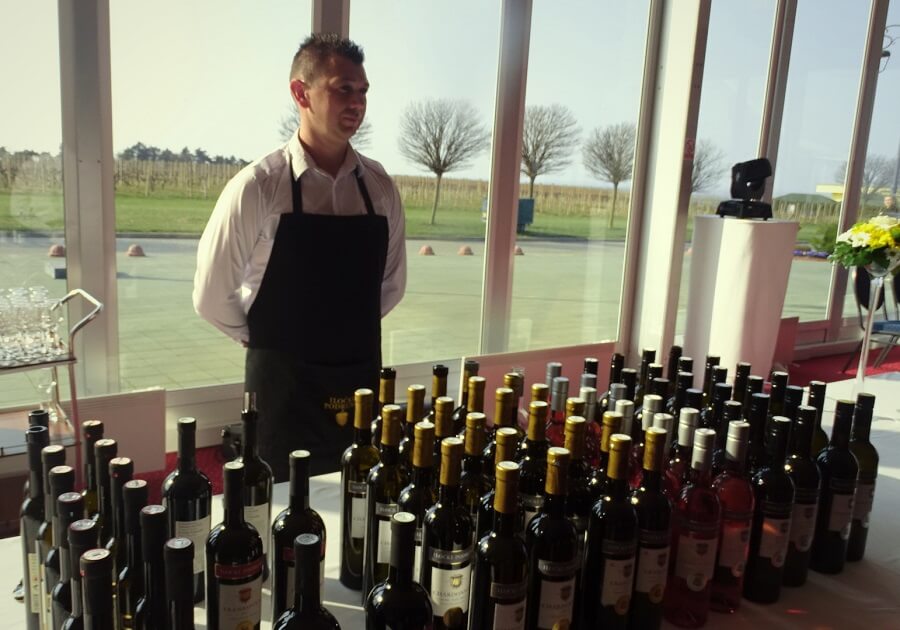The closing conference of the Gourmet Croatia project was held at the Principovac estate near the easternmost Croatian town of Ilok. Neven Ivandić and Neda Telišman Košuta from the Institute of Tourism presented the project and the brochure “Croatia - the New Gastronomic Icon of Europe (Strategy for the Development of Gastronomy, Gourmet and Gastronomic Tourism of Croatia with the Action Plan 2019-2022)”. The overall objectives of the project are to link the food processing sector and the tourism sector through the establishment of local production systems, as well as the territorial branding of Croatia as a recognisable gourmet destination.
After a public tender, the project was entrusted to the WYG Consulting, the Institute of Development and International Relations (IRMO) and the Institute of Tourism (IT), in cooperation with the chef Rudi Štefan. The project brochure explains that the growth of interest in food and beverages reflects profound social changes driven by the improvements in education and prosperity, technology and growing environmental pollution, while the key trends for the development of global gastronomy are experience buying, sustainability, healthy food, multiculturalism, return to tradition, good-quality fast food and growing media influence. That is the framework that supports further development of gastronomy and gastronomic tourism in the direction of creativity, authenticity and sustainability.

Gourmet refers to the highest-quality segment of gastronomy. Although gourmet restaurants represent less than 0.5% of the total gastronomic offer, they have a disproportionately large influence on gastronomy trends. The characteristics of gourmet cuisine are excellence in ingredients and the preparation and presentation of food, and in particular creativity and specific "trademark" of the chef as a person not only knowledgeable in food preparation but deeply dedicated to the "philosophy" of the cuisine he or she offers. The core of the gastronomic tourism is the eating experience itself that must reflect authentic cuisine, the knowledge of learning about local gastronomy and its protagonists, and ultimately the emotional experience of socialising.
The panel discussion "Value Chains for Gastronomy" was attended by Assistant Agriculture Minister Krunoslav Karalić, Jakša Puljiz from IRMO, Nives Kljajić as a representative of the distributor Portus Croatia, Dimitrije Sinović from the Sin Ravnice company as a representative of the producers, and Tomica Đukić, the chef of the Osijek Hotel restaurant. The discussion was moderated by Ivana Jurić, director of the Osijek-Baranja County Tourist Board.

Rudolf Štefan, the chef of the Pelegrini restaurant, spoke about the development of education in the gourmet area. "There are about sixty catering schools in Croatia, huge resources are being spent, but unfortunately not all of these schools produce good staff. We need one high-quality institution that will create the foundations for high-quality gastronomic future of Croatia.”
The second panel discussion "Promotion of Croatian Gastronomy" included Darija Tödling as a representative of the Croatian National Tourist Board, Rujana Bušić Srpak, director of the Vukovar-Srijem County Tourism Board, and Lucija Bilandžić as a representative of the Academy of Gastronomy. It was moderated by Snježana Boranić Živoder from the Institute of Tourism.

The tourism manager of Iločki Podrumi, Vesna Steiner, discussed the promotion of a destination through wine tourism, and the conference concluded with wine tasting – presentation of the Iločki Podrumi wines.
More news about Croatian gastronomy can be found in the Lifestyle section.


